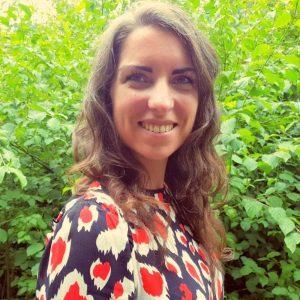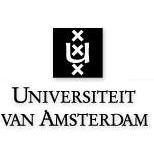Diving deeper into the meaning of CSE
Introduction
In 2016, the University of Amsterdam (UvA) was awarded a Share-Net International Small Grant for their proposed project, titled “CSE, teachers and formal and informal curricula: A qualitative analysis on the role of teachers in enhancing young women and men’s SRHR.” The concept of Comprehensive Sexuality Education (CSE) has gained a lot of traction internationally over the past few years. However, its broad nature leaves a lot of space for interpretation which can result in its delivery being not so comprehensive. Using their 2016 small grant, the UvA set forth to dig deeper into how comprehensive CSE really is.
For this blog, Marielle le Mat MSc PhD, who is an SRHR advisor at KIT Royal Tropical Institute, took the time to speak with us and reflect back on the small grant she received in 2016, its results and the added value of being a small grant recipient. Marielle worked at the University of Amsterdam in the Department of International Development Studies during the time when the small grant was received and was involved in the activities which were funded by the small grant, along with her colleague Esther Miedema.

About the Small Grant
The aim of the small grant was to better understand what is meant by “comprehensive” when we talk about CSE and who decides what comprehensive is. The small grant aimed to gain a better understanding of the theoretical underpinnings of CSE programmes and it focused on Ethiopia as a case study. It looked at the approach taken to address various forms of gender-based violence, including child marriage, investigating the role of teachers and classroom practices in efforts to enhance young people’s SRHR and disseminating knowledge to policymakers, practitioners and other stakeholders in Ethiopia and the Netherlands.
Outcomes and Impact
The small grant provided by Share-Net International resulted in two research activities- a literature review titled ‘Understanding the “Comprehensive” in Comprehensive Sexuality Education. A Literature Review’ and field research titled ‘Moulding the sexuality education teacher An analysis of comprehensive sexuality education in Ethiopia’.
Marielle shares that using the small grant, she and her colleagues first conducted the literature review. The review aimed to examine the core components and main definitions attributed to Comprehensive Sexuality Education and how these components and definitions can impact implementation within different contexts and at different levels. After the publication of this literature review, Marielle explains that it was taken up by practitioners, such as the Dutch NGO Rutgers, and was used to inform work that they were doing on the topic of CSE. Furthermore, the literature review was presented on several occasions.
Following the literature review, the UvA conducted field research in Ethiopia where they built on the themes identified during the literature review. The aim of the research was to develop a greater understanding of teachers’ experiences and views of CSE, and the roles they played in CSE delivery. The findings of this research were published and shared with the academic community and a validation meeting was organised in Ethiopia with teachers and stakeholders to share the results.
The small grant was also used by the UvA to disseminate the research widely. They were able to attend conferences and present their research. One such conference was the Comparative and International Education Society (CIES) conference in Atlanta. Marielle explains that the opportunity to do this contributed greatly to networking and creating new relationships as well as nourishing existing ones.
Marielle also shares that after all the time she spent on researching CSE, both from her time as a small grant recipient and beyond, she used it to contribute to her PhD!
Conclusion
When we asked Marielle if her experience as a recipient of the small grant was a good one, Marielle replied that it was, and commented that the process of applying was “user friendly, straight forward and clear”. She shared that she felt supported by Share-Net International throughout the process. Wrapping up our conversation, we asked Marielle if she would encourage other Share-Net members to apply for a small grant to which she replied “Very much! I really like how it [the small grant] was focused on translating research, policy and practice; and in Ethiopia there is a need for more research. Research, as in many countries, is underfinanced and we were able to contribute to that”.
Are you interested to read more about the Share-Net International Small Grants Facility, click here.
With special thanks to Marielle le Mat for her time and valuable insights.
Corporate Author: Nicole Moran
